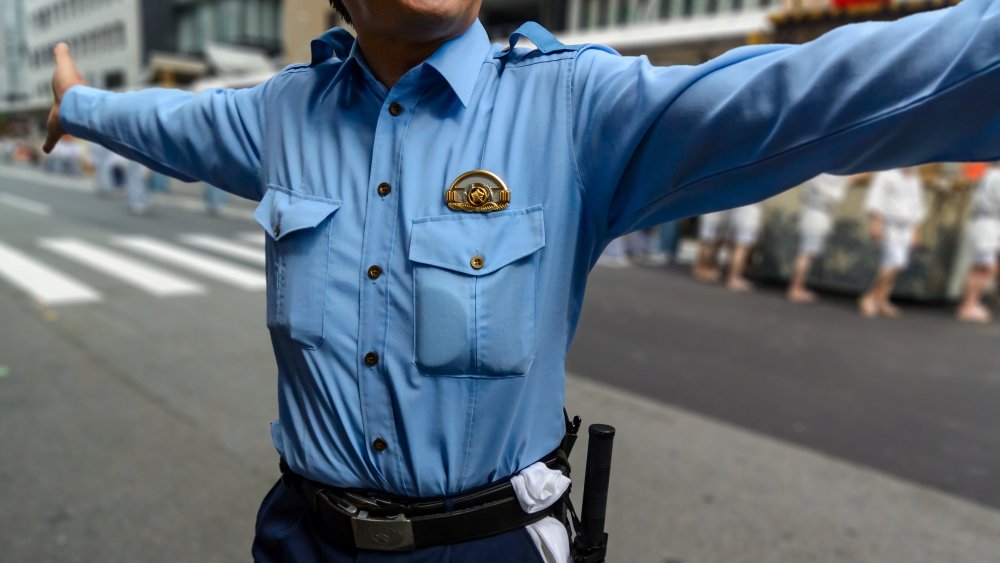The Reason Japan's Lost And Found System Is Insanely Good
It's everybody's worst nightmare. You're traveling abroad, and you've lost something critical. Maybe it's your wallet or your passport? Maybe it's the $10,000 engagement ring you were going to use to propose at the top of Mount Fuji? You don't speak the language, and you don't even know the terrain well enough to retrace your steps. What's an absent-minded traveler to do? Fear not. If you lost it in Japan, at least, you have a pretty good chance of getting it back.
According to the BBC, 83% of cellphones lost in the city of Tokyo ultimately found their way back into the pockets of their rightful owners last year. In a city of 9.2 million people, that might seem like a remarkable accomplishment, but it's all part and parcel with a comprehensive lost and found system that should be the envy of the world. Experts say that the success of the Japanese system is a combination of three factors: infrastructure, legal incentives and the behavioral influence of cultural norms.
Community-based law enforcement key to success
Japan employs a community-based approach to law enforcement, and their lost and found system is a natural outgrowth of this communitarian philosophy. Municipalities maintain a system of 6,300 "koban" or police boxes where any good samaritan can deposit a lost or stolen item to be returned to its owner — no questions asked. In 2018, over 4.1 million lost items worth approximately 3 billion yen were returned to police through the koban, and that number is actually on the rise.
Japanese lawmakers have built a legal framework around lost and found to complement the infrastructure. The Amended Lost Property Act provides for both carrots and sticks to encourage the return of lost property. The 2007 law offers a reward of 5-20% of a lost item's value. And the stick? These returns are actually mandated by law, and violators may find themselves the subject of prosecution.
Cultural norms are ingrained from a young age
You might be thinking right now that this system, which relies heavily on the altruism of the Japanese populace, would never work in — say — the United States. You might be correct in that assumption. Japanese officials believe the efficacy of the system owes a huge debt to Japanese civic culture. Schoolchildren are taught to utilize the koban from an early age, and prosocial behavior is reinforced by police and schoolteachers alike.
Former police officer Toshinari Nishioka explained what happens when a child turns in a lost item: "Even if it's only one or five yen, the officer would take it seriously and tell him: 'You did a great job.' They do this to cultivate the child's self-esteem and sense of accomplishment. The police officers' job isn't just about cracking down on criminals; they also try to increase the good deeds of the local community."


